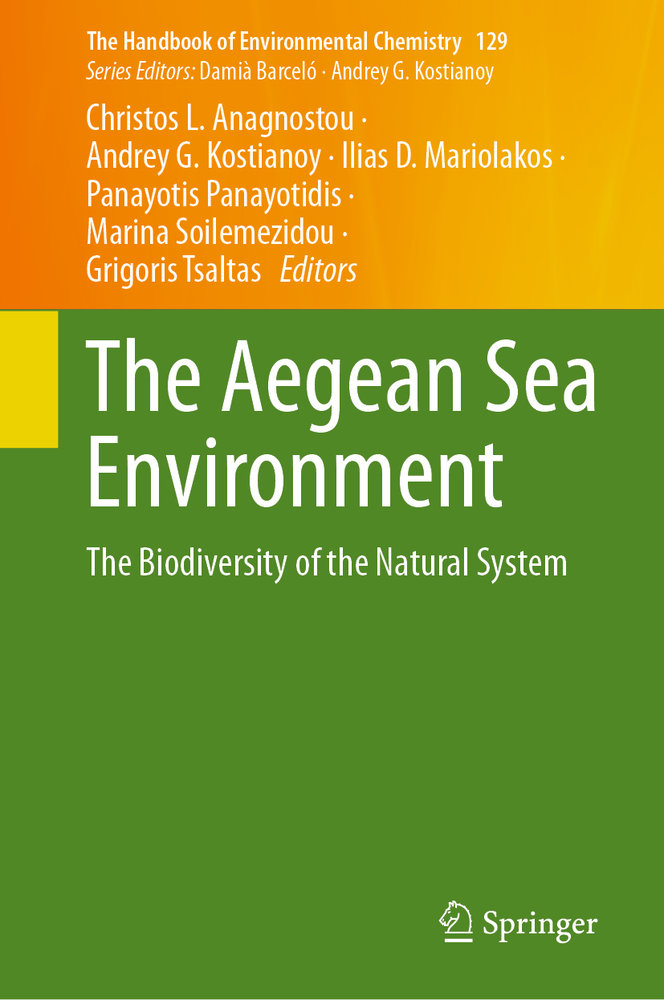This is the second of three Books that together provide an integrated picture of the Aegean Sea, presenting the natural components of the system (Book I and Book II) as well as the human presence in the extended area (Book III).
The Aegean Sea, also called Aegean Archipelagos, is an open, complex, and diverse marine system situated between the Black Sea and the Eastern Mediterranean, with different compartments and interactions. Book II offers a multidisciplinary perspective of the diverse habitats and intricate relationships that shape the Aegean Sea's coastal environment, covering the Aegean Sea's biodiversity. Book II also, provides valuable insights into the current state and conservation of the cetaceans, Mediterranean monk seals, sea turtles, seabirds, and benthic communities that call the Aegean Sea home. The book closes with a chapter where experts in the field provide an overview of the functioning of the Aegean Sea natural system, highlighting existing knowledge gaps and proposing avenues for future research.
Given the breadth and depth of its coverage, this book serves as a valuable resource for researchers, scholars, and students interested in biology of the marine environment, as well as policymakers and conservationists seeking a comprehensive understanding of the Aegean Sea's complex natural systems.


